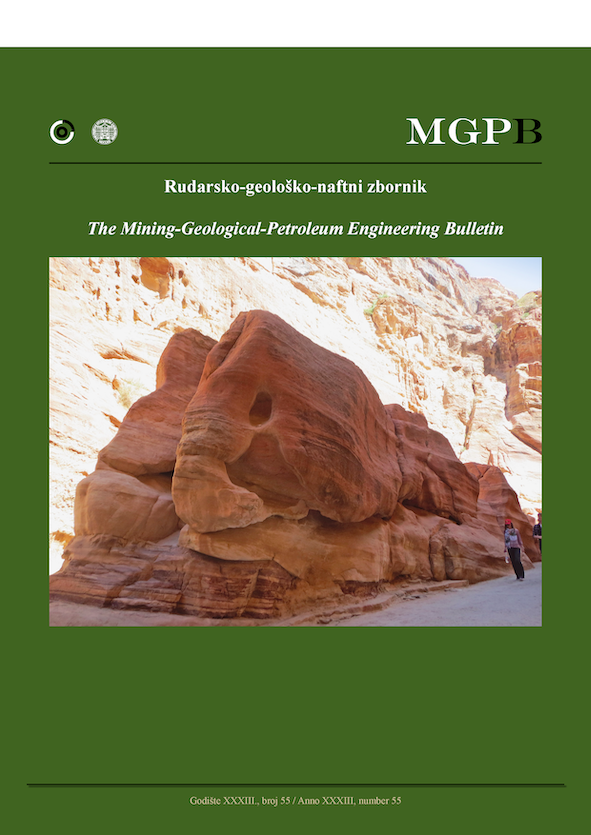Oil Spill in a Marine Environment: Requirements Following an Offshore Oil Spill
DOI:
https://doi.org/10.17794/rgn.2021.4.1Keywords:
Oil spill, wave-hydrodynamics, weathering, oil spill modelling, oil spill treating agentsAbstract
The global lifestyle of this modern world has become more dependent on petroleum-based products, whose applications are involved almost everywhere. Since a large quantity of oil is being used on a daily basis, the spilling of oil by various means during its storage and transportation has become inevitable. This work focuses on the spilling of oil in a marine environment, generally referred to as an offshore oil spill, in contrast to an onshore oil spill associated with a terrestrial environment. These oil spills not only devastate the natural resources and unsettle the economy, they also jeopardize marine life, as well as human health. The remediation of an oil spill remains very challenging, when the disaster is associated with a large aerial extent. In this context, a sound understanding is required on the origin, seeping, composition and properties of the spilled oil in order to better monitor the spreading of the oil spill. In this manuscript, a detailed list of fundamental queries, which will be required to be addressed at the instance of an oil spill has been deduced, which will be extremely useful for the oil spill respondents as there are no previous studies that exclusively provide the type and nature of data required to be collected, immediately following an oil spill. Furthermore, this manuscript has deduced a list of sensitive and essential plots that will be required in order to analyse and forecast the spreading of an oil spill. An essence of weathering and its associated movement of oil spill has been included.
Downloads
Published
How to Cite
Issue
Section
License
Copyright (c) 2021 authors and journal

This work is licensed under a Creative Commons Attribution 4.0 International License.
Creative Commons-BY
Authors who publish with this journal agree to the following terms:
In agreeing this form, you certify that:
- You read the ethical codex of the RGN zbornik available at journal web.
- You submitted work is your original work, and has not previously been published and does not include any form of plagiarism.
- You own copyright in the submitted work, and are therefore permitted to assign the licence to publish to RGN zbornik.
- Your submitted work contains no violation of any existing copyright or other third party right or any material of an obscene, libellous or otherwise unlawful nature.
- You have obtained permission for and acknowledged the source of any illustrations, diagrams or other material included in the work of which you are not the copyright owner.
- You have taken due care to ensure the accuracy of the work, and that, to the best of your knowledge, there are no false statements made within it.
- All co-authors of this submitted work are aware of, and in agreement with, the terms of this licence and that the submitted manuscript has been approved by these authors.
Publication licence
You retain copyright in your submitted work, according to journal license policy (CC-BY). By signing this form you agree that RGN zbornik may publish it under the publication licence. In summary the licence allows the following:
Anyone is free:
- To copy, distribute, display, and perform the work.
- To make derivative works.
Under the following conditions:
- The original author must always be given credit.
- The work may not be used for commercial purposes.
- If the work is altered, transformed, or built upon, the resulting work may only be distributed under a licence identical to this one.
Exceptions to the licence
In addition to publishing the work printed under the above licence, RGN zbornik will also enable the work to be visible online.
The journal editorial can change the licence rules anytime but it cannot retroactively restrict author(s) rights.


